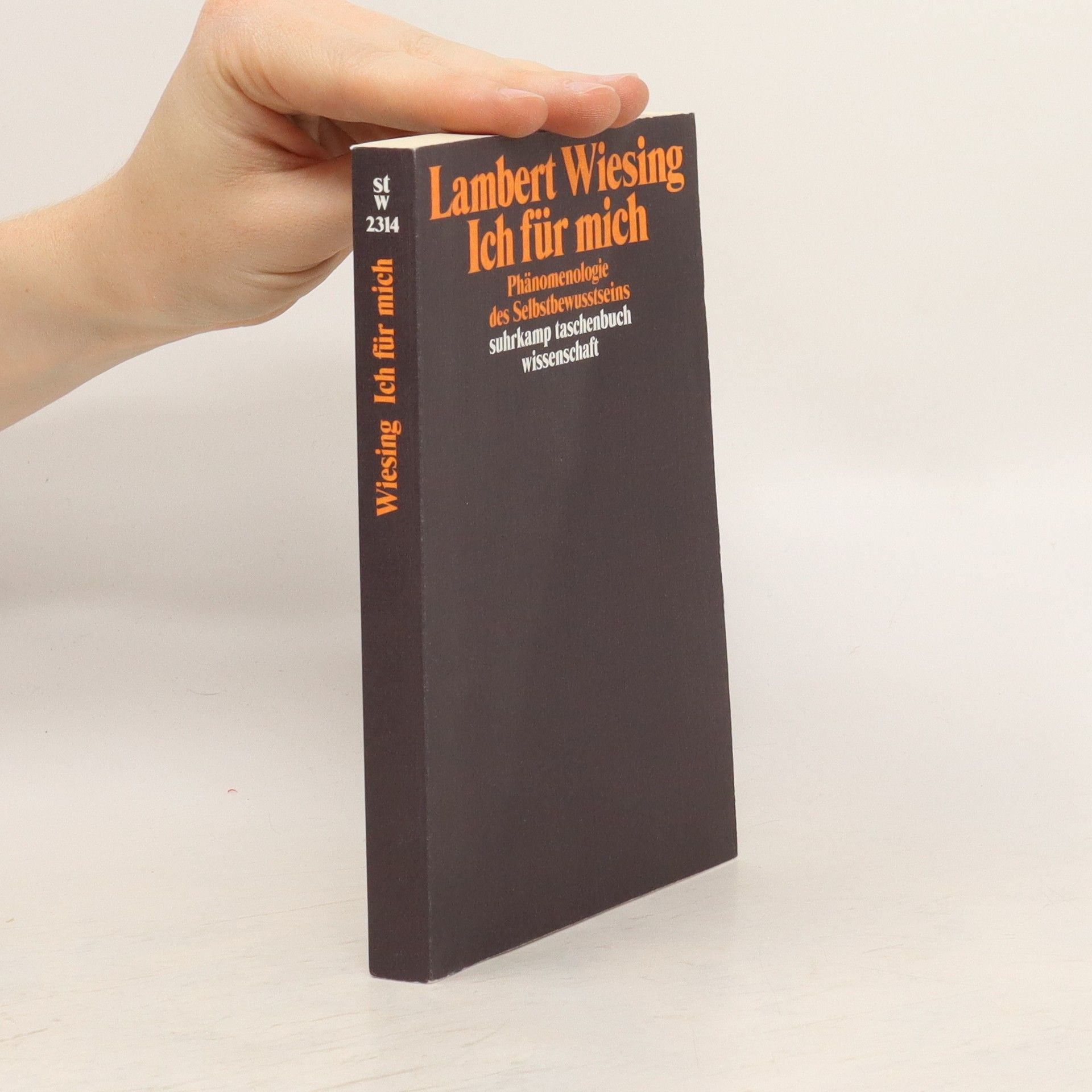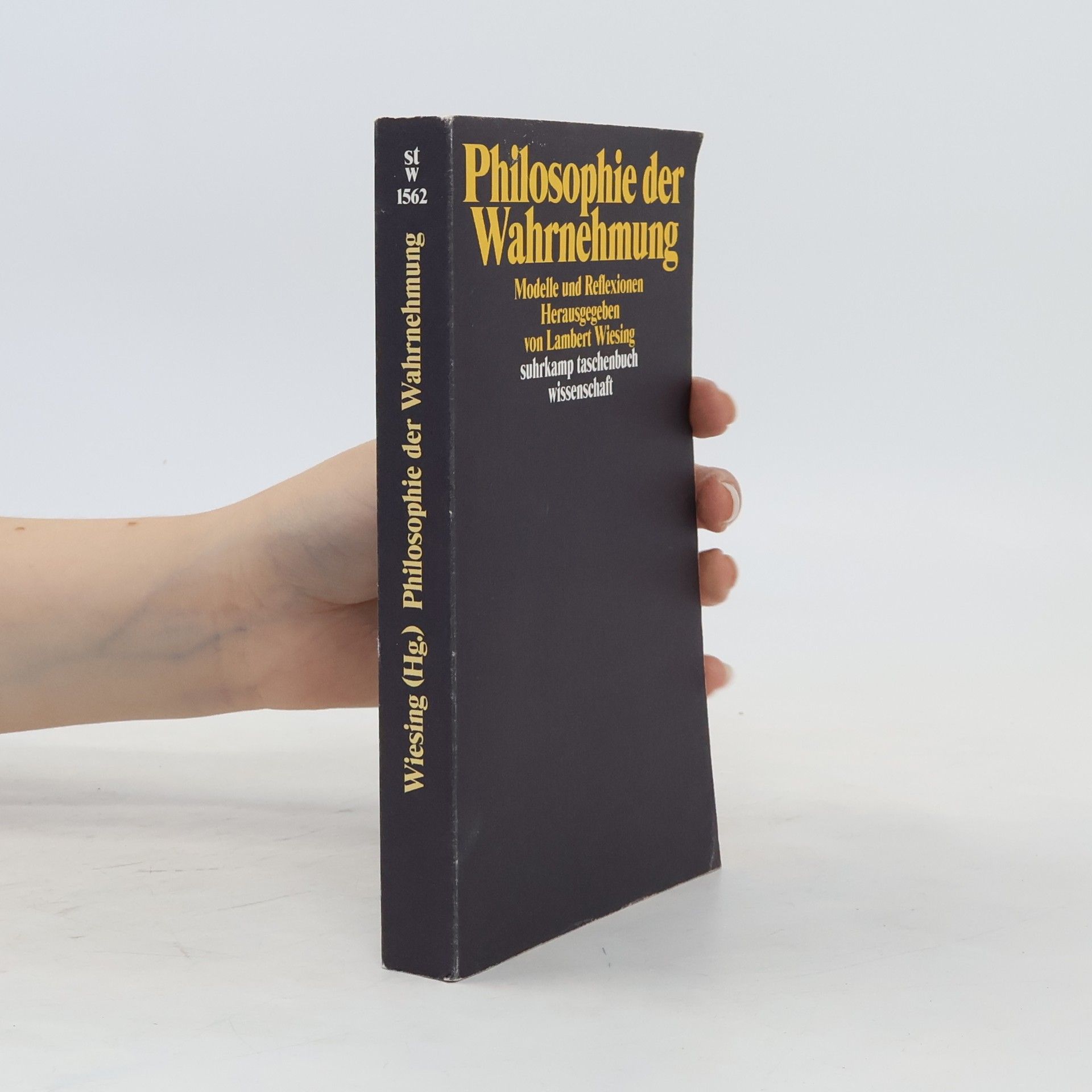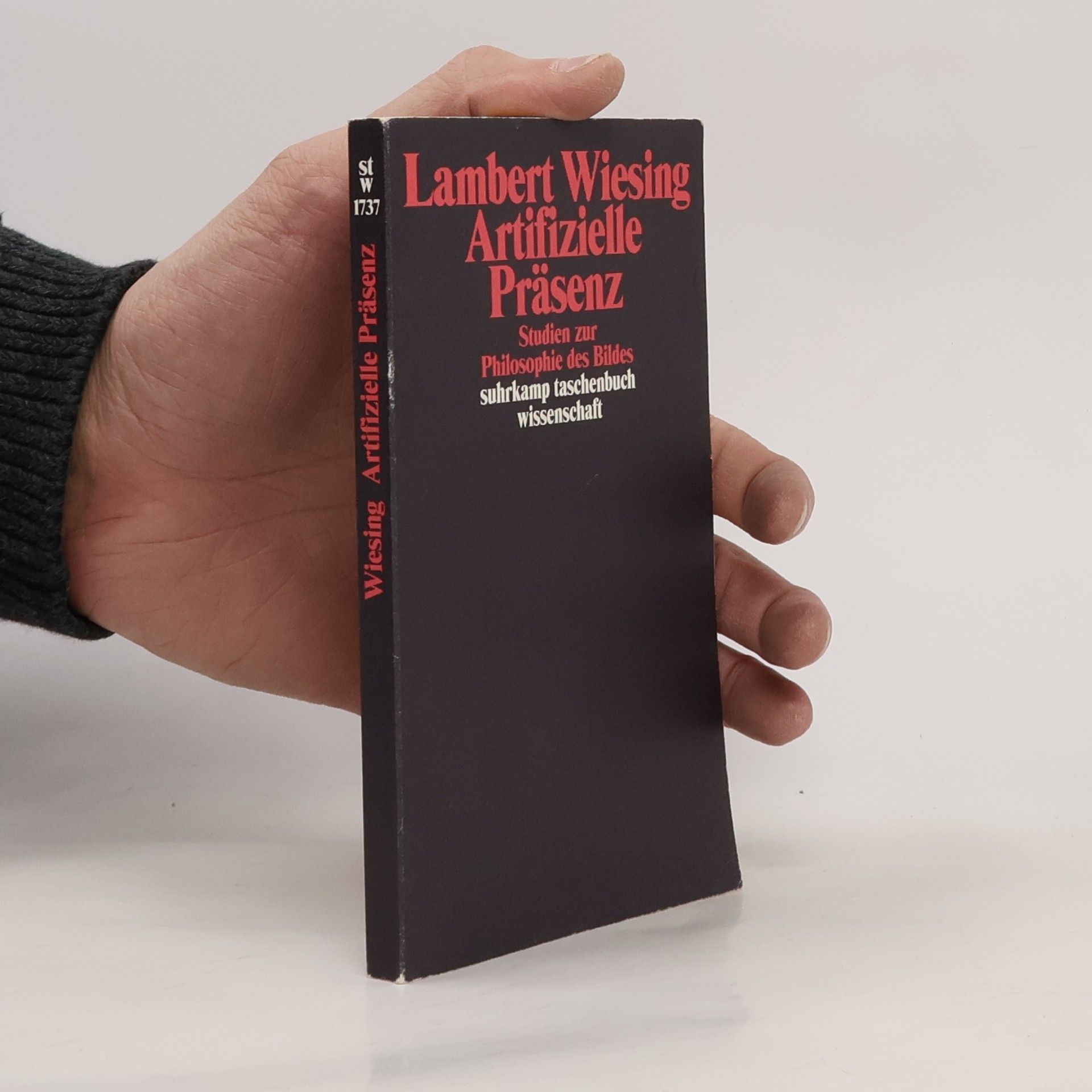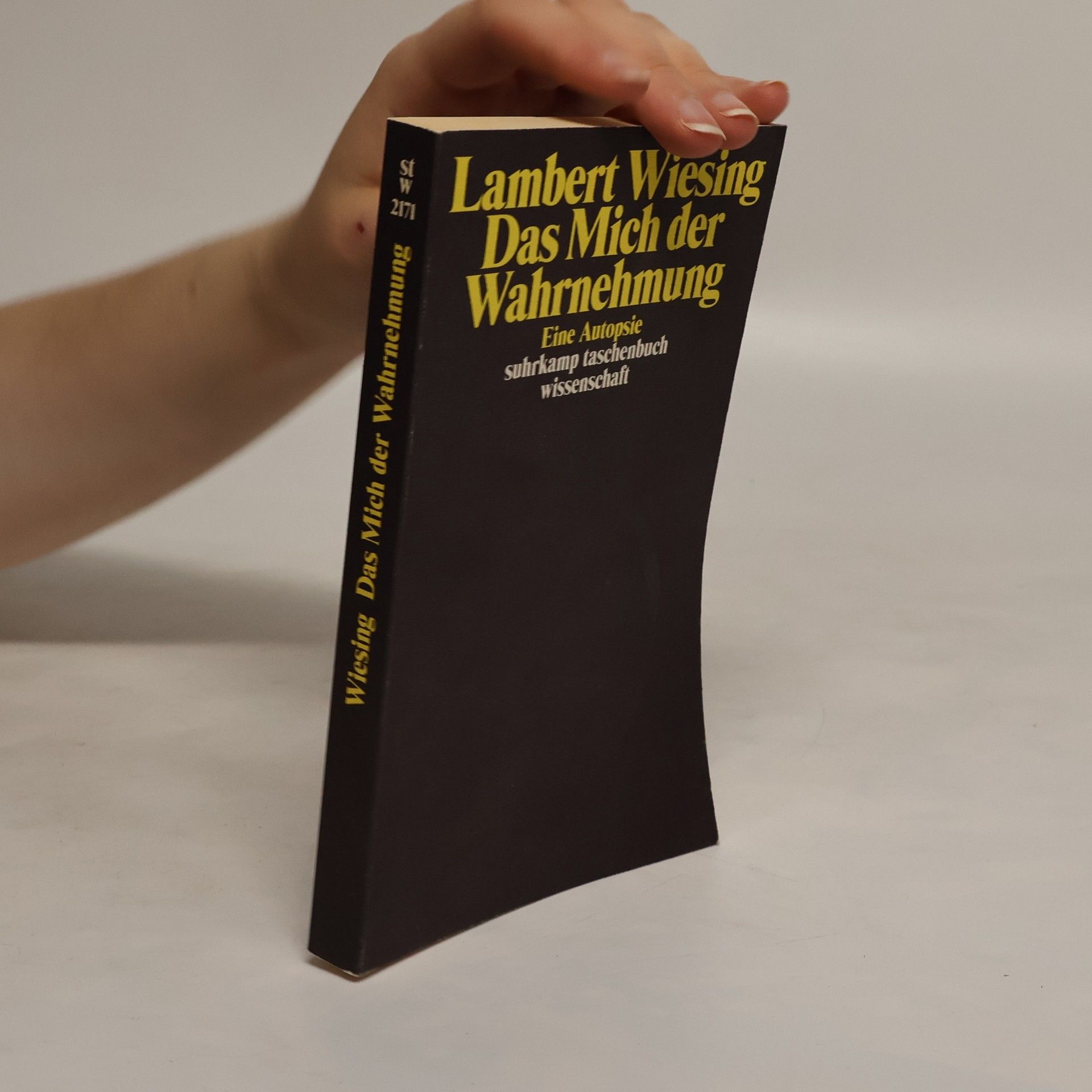Assoziationen sind zentrale Elemente des menschlichen Erlebens, die das Gefühl der eigenen Individualität prägen. Lambert Wiesing untersucht in seiner phänomenologischen Abhandlung, wie ungefragt auftretende Assoziationen das Bewusstsein für das eigene Ich formen. Er argumentiert, dass nicht die Individuen selbst die Assoziationen hervorrufen, sondern dass es die Assoziationen sind, die das Individuum definieren und ihm ein einzigartiges Dasein in der Welt verleihen. Diese Perspektive eröffnet neue Einsichten in die Beziehung zwischen Wahrnehmung und Identität.
Lambert Wiesing Book order (chronological)






Ich für mich
Phänomenologie des Selbstbewusstseins
Einer Phänomenologie des Selbstbewusstseins geht es nicht um eine Erklärung, wie und aufgrund welcher Bedingungen Selbstbewusstsein möglich ist. Ihr Ausgangspunkt ist für Lambert Wiesing vielmehr die Wirklichkeit des Phänomens selbst: Wie muss ich mir als selbstbewusstes Wesen in der Welt vorkommen? Kurz: Wie bin ich für mich ? Die Antwort lautet: Ich muss mit meinem eigenen Stil in der Welt sein – mit einem Stil, der sich notwendig zwischen den Extremen eines malerischen Mit-der-Welt-verbunden-Seins und eines linearen Von-der-Welt-distanziert-Seins abspielt.
Wer wahrnimmt, weiß, wie es ist, ein Wahrnehmender zu sein. Dieses besondere Wissen des Menschen um seine eigene Lage ist das Thema einer Phänomenologie, die den Versuch wagt, um der sicheren Erkenntnis willen auf jede Modellbildung zu verzichten. Wenn sich die traditionellen Modelle der Wahrnehmung als Mythen erweisen, muß die Erfahrung des Wahrnehmens selbst zum Thema werden. Damit ändert sich aber die Perspektive: Nicht das Ich, das die Wahrnehmung hervorbringt, wird thematisiert, sondern die Wahrnehmung, die mich hervorbringt und in der Welt sein läßt. Dieses Mich der Wahrnehmung gilt es zu beschreiben.
Zeigen erregt Aufmerksamkeit. Ein ausgestreckter Finger lenkt den Blick auf eine Sache – aber nicht nur das: Gerade in jüngster Zeit richten sich auch die Blicke diverser Wissenschaften auf das Zeigen selbst. Thema dieses Buches ist der spezifische kulturelle Umgang mit Bildern und Museen, aber auch mit Uhren, Kunstwerken, Kleidung und Gesichtern, der dazu führt, dass diese uns etwas sehen lassen. Lambert Wiesing widerspricht dabei dem verbreiteten Mythos, Bilder würden schon allein deshalb etwas zeigen, weil auf ihnen etwas sichtbar ist. Eine umfassende und präzise philosophische Studie.
David Hume, Eine Untersuchung über den menschlichen Verstand
- 484 pages
- 17 hours of reading
Die neue Reihe Suhrkamp Studienbibliothek ist ideal als erste Orientierung für Theorieeinsteiger und schafft eine fundierte Grundlage für Lektürekurse an Schulen und Universitäten.
Suhrkamp Taschenbuch Wissenschaft - 1737: Artifizielle Präsenz
Studien zur Philosophie des Bildes
- 164 pages
- 6 hours of reading
»Die Studien zur Philosophie des Bildes verfolgen eine doppelte Absicht: Sie bemühen sich einerseits um einen Überblick über die grundlegenden Positionen innerhalb der gegenwärtigen Bildwissenschaft und versuchen andererseits stets einen systematischen Hauptgedanken zu verteidigen: Bilder präsentieren; nur Bilder ermöglichen die artifizielle Präsenz von ausschließlich sichtbaren Dingen, die den Gesetzen der Physik enthoben sind. Vor dem Hintergrund dieses Bildbegriffs wird die Verwendung von Bildern als Zeichen aus einer phänomenologischen Sicht beschrieben, Platons Mimesis-Begriff anhand seiner kanonischen Bildvorstellungen rekonstruiert und die besondere Bedeutung extremer Bildtypen – wie die virtuelle Realität, Benutzeroberflächen oder die Abstrakte Fotografie – für die philosophische Arbeit am Bildbegriff vorgeführt.«
Was ist Wahrnehmung? Die in diesem Band versammelten Texte geben einen überblick über die einflußreichsten Antworten der Wahrnehmungsphilosophie von Descartes bis zur Gegenwart. In der Philosophie der Wahrnehmung steht durchgehend ein Problem zur Diskussion: Welches Modell oder welche Beschreibung ist in der Lage, das Phänomen der sinnlichen Wahrnehmung als Ganzes in seiner Funktionsweise und Bedeutung zu erfassen? Dieser Band dokumentiert umfassend die entscheidenden wahrnehmungstheoretischen Modelle und ist damit ideal als Einführung wie auch als Seminarreader geeignet.
Stil statt Wahrheit
Kurt Schwitters und Ludwig Wittgenstein über ästhetische Lebensformen
- 168 pages
- 6 hours of reading


